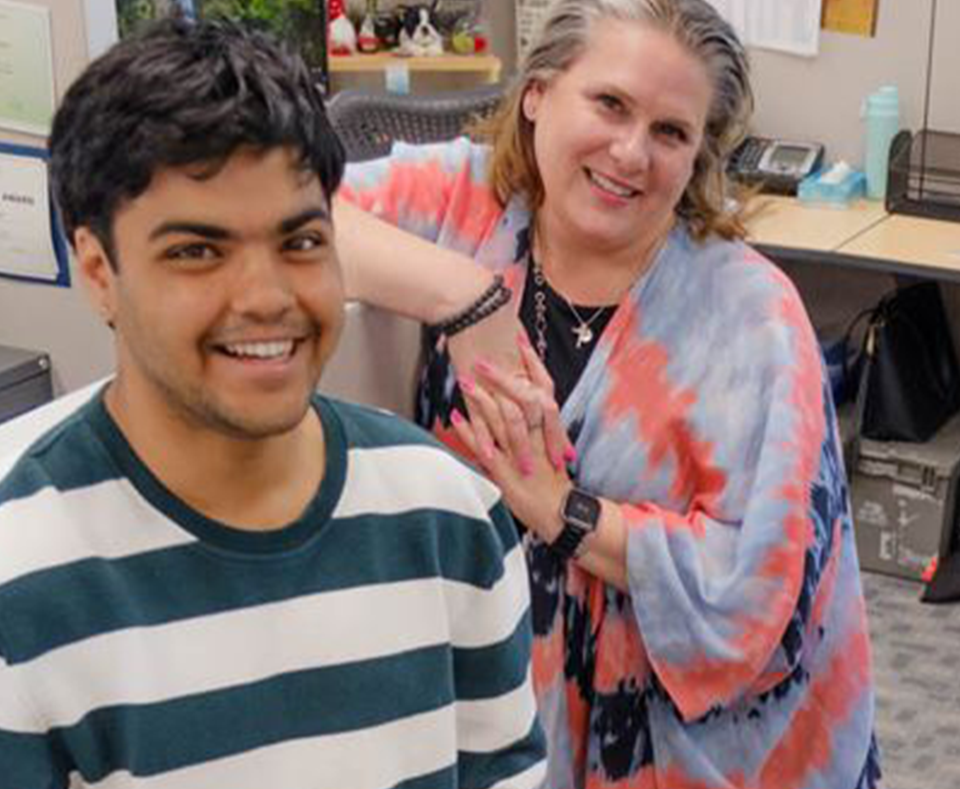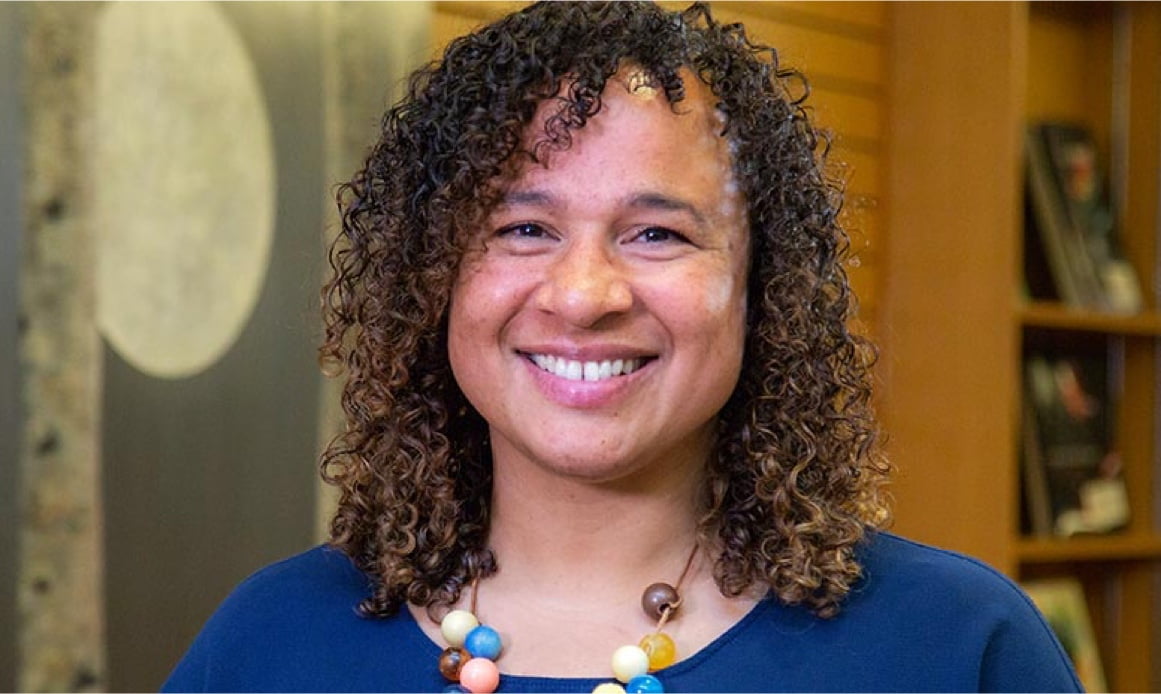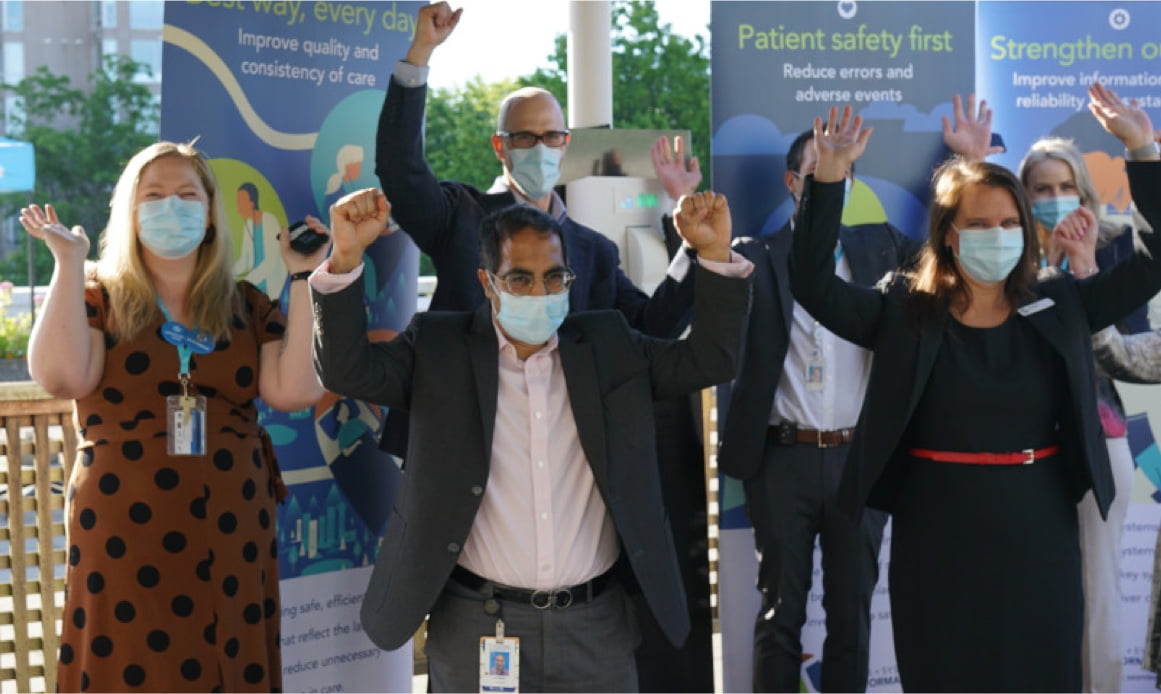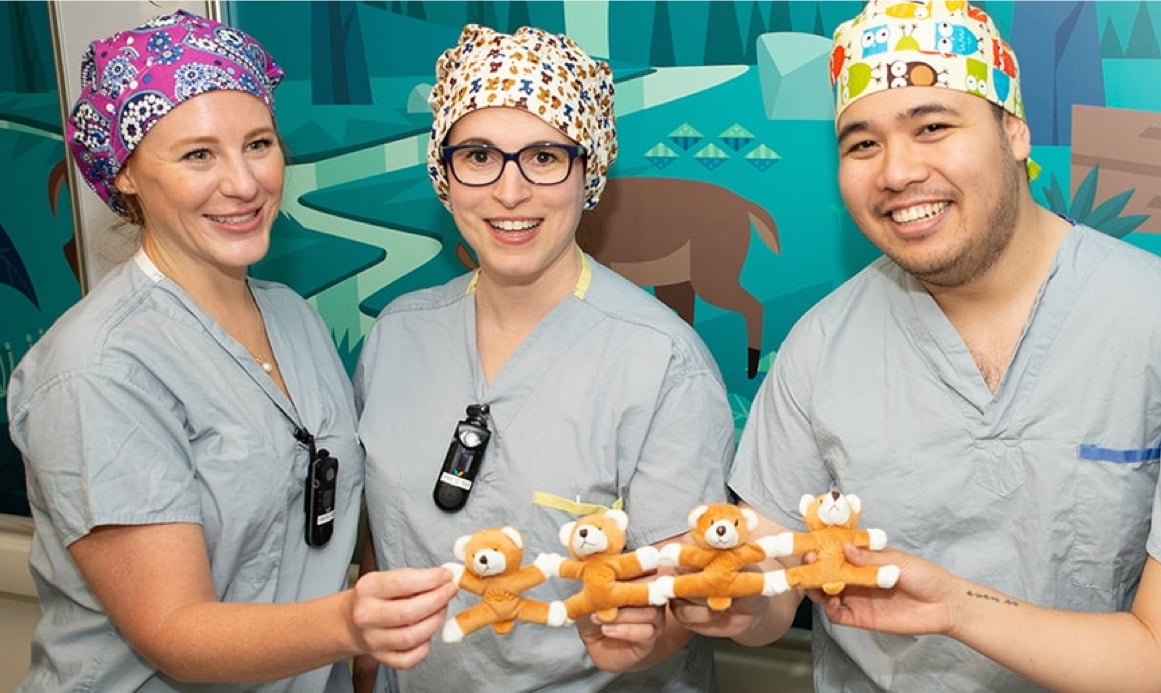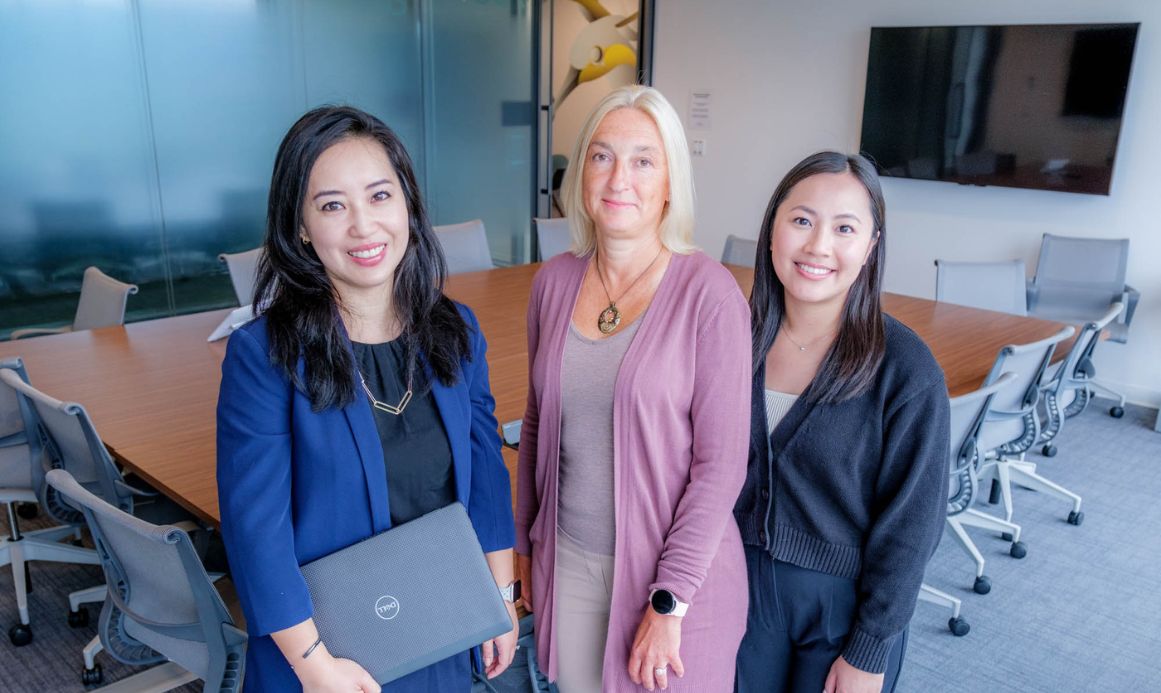Pathologists’ Assistant Supervisor
Job Summary:
In accordance with the Mission, Vision, Values and strategic direction of PHSA, safety, including both patient and employee safety, is a priority and a responsibility shared by everyone at PHSA. As such, the requirement to continuously improve quality and safety is inherent in all aspects of this position.
The Pathologists’ Assistant Supervisor reports to the Team Lead and/or designate, provides Pathology Assistant technical leadership and expertise and is responsible for the day-to-day supervision of the Gross Room and Morgue. The role develops processes and procedures, facilitates workplace solutions and oversees the implementation of new or revised workflow processes to ensure that staff scheduling meets the operational requirements for the Gross Room and Morgue. As a technical practice resource, the Supervisor participates in the development, coordination and implementation of staff and student orientation and training programs, provides input into performance management of team members, and monitors the quality of technical work performed to ensure standards are upheld and safety procedures are followed.
Under the direct supervision of pathology medical staff in all matters relating to tissue examination, the role holds primary responsibility for the initial examination and dissection of all surgically removed tissues, and dissection of bodies during post-mortem examination.
Duties/Accountabilities:
1. Supervises staff by performing duties such as coordinating the day-to-day work activities and prioritization of activities organizes and implements orientation and training programs for new staff and students.
2. Supervises technical grossing activities within the Gross Room to bench Prosectionists and grossing technologists and provides oversight and assistance to grossing staff for:
• Grossing and dictation of surgical, and biopsy tissue specimens.
• Preparing tissues for microscopic examination for intraoperative consultation.
• Responsible to create, evaluate and implement new procedures/processes, equipment and instrumentation, dissection techniques and to ensure staff is instructed in their use.
• Maintaining extensive knowledge in dissection and dictation techniques/procedures and laboratory operation in order to evaluate, recommend and/or implement change.
• Assuring appropriate specimen accessioning and preparation.
• Gathering and organize pertinent clinical information and history including x-rays, scans, reports, operative records, photographs, laboratory testing results.
• Data entry into Laboratory Information System and generation of reports/labels including accession labels, worksheets, reports, logs.
• Performing technical gross dissection of all specimen types and complexities (L4E Levels I to VI).
• Preparing specimens for special procedures and referred out testing such as lymphoma protocol, cytogenetic studies, immunofluorescence and flow cytometry as required.
• Performing specimen photography, mapping sections and generating diagrams when appropriate.
• Maintenance of Gross Room protocols/procedures, reports and data.
• Assuring proper maintenance of equipment and adequate volume of supplies.
• Maintaining a clean and disinfected technical work area and related instrumentation according to established guidelines.
• Managing proper storage and disposal of biological specimens.
• Ensuring resolution of technical problems referred by staff.
• Meets with sales and technical representatives as requested.
• Ensuring Gross Room compliance with requirements for accurate and thoroughly documented quality control, quality assurance, instrument maintenance and service records, investigating and following up on quality measures/monitors.
3. Supervises the technical functions within the Morgue including specimen handling, dissections, staff and resident training and evaluation as well as quality control/improvement programs and provides oversight and assistance to morgue staff for:
• Verifying proper legal authorization for autopsy.
• Assuring proper transport, completeness of documentation and identification of decedents entering and leaving the morgue.
• Preparing the morgue suite and required tools, instrumentation and sample containers for post mortem examination.
• Performing adult and pediatric post-mortem examinations including: external examinations, in-situ organ inspection, evisceration, dissection and dictation as required.
• Obtaining biological specimens such as blood tissue and toxicological fluids/materials.
• Performing special autopsy techniques such as spinal cord removal as required.
• Assisting the pathologist and/or residents throughout the autopsy.
• Proper cleaning and disinfection of the morgue and related instrumentation and tools after a post-mortem examination according to established guidelines.
• Performing specimen photography.
• Liaising with Diagnostic Imaging to coordinate post-mortem imaging.
• Assuring proper maintenance of equipment and an adequate volume of supplies.
• Liaising with provincial and out of province coroners offices.
4. Develops operational guidelines, policies and procedures to ensure that the standards for quality are maintained. Provides leadership to technical and clerical staff on practice and operational issues through problem resolution.
5. Participating in interviewing and selection of new staff. Participating in the annual performance appraisal process. Providing support, coaching and performance feedback to employees. Investigating employee performance matters where corrective action or discipline is required. Issue discipline.
6. Responsible for the training of all new medical students, residents and students from the Pathologists’ Assistant program.
7. Conducting independent research work under the supervision of a Pathologist and presenting the results/findings at scientific conferences, seminars, in laboratory meetings or in related settings.
8. Collaborating with relevant departments to assess the impact of research projects and establishing internal process for handling research activity.
9. Participates in biobanking research.
10. Establishing documenting reviewing and maintaining laboratory Quality Control programs; assesses results and ensures necessary corrective actions are carried out.
11. Ensuring testing of external proficiency specimens is completed and results reported promptly, where applicable.
12. Ensuring compliance by area staff with established policies, and procedures, professional standards and practice, and requirements of accreditation agencies. Implementing and monitoring procedures for capturing and maintaining statistics as required by governing agencies.
13. Works with medical staff for service reviews and setting of service objectives by initiating data collection and analysis for service planning and improvement. Oversees follow up as agreed upon.
14. Partners with senior technical and medical staff and other stakeholders to review equipment, methodology and new scientific development and facilitate the introduction of new diagnostic laboratory technologies as appropriate and in accordance with the strategic plan.
15. Provides leadership in establishing priorities for allocation of available resources including identifying resources for Laboratory Divisions/Programs and services such as planning for space, equipment and staff.
16. Defines an effective workforce plan consistent with strategic goals and objectives and within the context of operational demands and environmental and resource constraints. Oversees the recruitment and professional developments of non-medical staff members and ensures that staff members are achieving a level of performance that meets the highest standards within their areas of function.
17. Performs other related tasks as assigned.
Qualifications:
Education, Training and Experience
• Certification or eligible for certification with Canadian Certification Council of Pathologists' Assistants (CCCPA).
• Graduation from an approved Master’s Pathologist Assistant Program, plus three (3) years' recent surgical and autopsy pathology experience, including one (1) year of supervisory/management experience, or an equivalent combination of education, training, and experience.
Skills and Abilities
• Comprehensive knowledge of the standards of practice and guidelines for Pathologist’s Assistants established by the CCCPA and/or other relevant national professional associations.
• Demonstrated ability to function as a team member, leader, teacher, motivator, and facilitator and to coach and deal with others effectively and in a supportive manner.
• Demonstrated ability to communicate effectively, both verbally and in writing, with co-workers, medical personnel and other healthcare staff, both one-to-one and in groups.
• Familiarity with principles of diagnostic anatomic pathology.
• Diligence, meticulousness and exceptional organizational skills.
• Comprehensive knowledge of organization policies, procedures, and standards of care, including practice of safe work procedures with discipline equipment.
• Demonstrated ability to meet deadlines and benchmarks while consistently displaying a high level of attention to detail.
• Demonstrated ability to work independently and as part of a team.
• Demonstrated customer service skills in assessing and meeting the needs of internal and external stakeholders.
• Demonstrated ability to deal effectively with all levels of scientific and clinical faculty, staff, trainees, and patients.
• Demonstrated ability to work with deceased patients.
• Demonstrated ability to work with sensitive information and data in a discrete and professional manner.
• Follows established policies and procedures to ensure the privacy and safety of patients, co-workers, and self.
• Displays accountability for actions and learns from mistakes.
• Demonstrated ability to identify problems, apply sound judgement, and proactively takes initiative to address issues.
• Demonstrated change management, leadership and supervisory skills.
• Strong computer skills including proficiency in Microsoft Word, Excel, Visio and PowerPoint.
In accordance with the Mission, Vision, Values and strategic direction of PHSA, safety, including both patient and employee safety, is a priority and a responsibility shared by everyone at PHSA. As such, the requirement to continuously improve quality and safety is inherent in all aspects of this position.
The Pathologists’ Assistant Supervisor reports to the Team Lead and/or designate, provides Pathology Assistant technical leadership and expertise and is responsible for the day-to-day supervision of the Gross Room and Morgue. The role develops processes and procedures, facilitates workplace solutions and oversees the implementation of new or revised workflow processes to ensure that staff scheduling meets the operational requirements for the Gross Room and Morgue. As a technical practice resource, the Supervisor participates in the development, coordination and implementation of staff and student orientation and training programs, provides input into performance management of team members, and monitors the quality of technical work performed to ensure standards are upheld and safety procedures are followed.
Under the direct supervision of pathology medical staff in all matters relating to tissue examination, the role holds primary responsibility for the initial examination and dissection of all surgically removed tissues, and dissection of bodies during post-mortem examination.
Duties/Accountabilities:
1. Supervises staff by performing duties such as coordinating the day-to-day work activities and prioritization of activities organizes and implements orientation and training programs for new staff and students.
2. Supervises technical grossing activities within the Gross Room to bench Prosectionists and grossing technologists and provides oversight and assistance to grossing staff for:
• Grossing and dictation of surgical, and biopsy tissue specimens.
• Preparing tissues for microscopic examination for intraoperative consultation.
• Responsible to create, evaluate and implement new procedures/processes, equipment and instrumentation, dissection techniques and to ensure staff is instructed in their use.
• Maintaining extensive knowledge in dissection and dictation techniques/procedures and laboratory operation in order to evaluate, recommend and/or implement change.
• Assuring appropriate specimen accessioning and preparation.
• Gathering and organize pertinent clinical information and history including x-rays, scans, reports, operative records, photographs, laboratory testing results.
• Data entry into Laboratory Information System and generation of reports/labels including accession labels, worksheets, reports, logs.
• Performing technical gross dissection of all specimen types and complexities (L4E Levels I to VI).
• Preparing specimens for special procedures and referred out testing such as lymphoma protocol, cytogenetic studies, immunofluorescence and flow cytometry as required.
• Performing specimen photography, mapping sections and generating diagrams when appropriate.
• Maintenance of Gross Room protocols/procedures, reports and data.
• Assuring proper maintenance of equipment and adequate volume of supplies.
• Maintaining a clean and disinfected technical work area and related instrumentation according to established guidelines.
• Managing proper storage and disposal of biological specimens.
• Ensuring resolution of technical problems referred by staff.
• Meets with sales and technical representatives as requested.
• Ensuring Gross Room compliance with requirements for accurate and thoroughly documented quality control, quality assurance, instrument maintenance and service records, investigating and following up on quality measures/monitors.
3. Supervises the technical functions within the Morgue including specimen handling, dissections, staff and resident training and evaluation as well as quality control/improvement programs and provides oversight and assistance to morgue staff for:
• Verifying proper legal authorization for autopsy.
• Assuring proper transport, completeness of documentation and identification of decedents entering and leaving the morgue.
• Preparing the morgue suite and required tools, instrumentation and sample containers for post mortem examination.
• Performing adult and pediatric post-mortem examinations including: external examinations, in-situ organ inspection, evisceration, dissection and dictation as required.
• Obtaining biological specimens such as blood tissue and toxicological fluids/materials.
• Performing special autopsy techniques such as spinal cord removal as required.
• Assisting the pathologist and/or residents throughout the autopsy.
• Proper cleaning and disinfection of the morgue and related instrumentation and tools after a post-mortem examination according to established guidelines.
• Performing specimen photography.
• Liaising with Diagnostic Imaging to coordinate post-mortem imaging.
• Assuring proper maintenance of equipment and an adequate volume of supplies.
• Liaising with provincial and out of province coroners offices.
4. Develops operational guidelines, policies and procedures to ensure that the standards for quality are maintained. Provides leadership to technical and clerical staff on practice and operational issues through problem resolution.
5. Participating in interviewing and selection of new staff. Participating in the annual performance appraisal process. Providing support, coaching and performance feedback to employees. Investigating employee performance matters where corrective action or discipline is required. Issue discipline.
6. Responsible for the training of all new medical students, residents and students from the Pathologists’ Assistant program.
7. Conducting independent research work under the supervision of a Pathologist and presenting the results/findings at scientific conferences, seminars, in laboratory meetings or in related settings.
8. Collaborating with relevant departments to assess the impact of research projects and establishing internal process for handling research activity.
9. Participates in biobanking research.
10. Establishing documenting reviewing and maintaining laboratory Quality Control programs; assesses results and ensures necessary corrective actions are carried out.
11. Ensuring testing of external proficiency specimens is completed and results reported promptly, where applicable.
12. Ensuring compliance by area staff with established policies, and procedures, professional standards and practice, and requirements of accreditation agencies. Implementing and monitoring procedures for capturing and maintaining statistics as required by governing agencies.
13. Works with medical staff for service reviews and setting of service objectives by initiating data collection and analysis for service planning and improvement. Oversees follow up as agreed upon.
14. Partners with senior technical and medical staff and other stakeholders to review equipment, methodology and new scientific development and facilitate the introduction of new diagnostic laboratory technologies as appropriate and in accordance with the strategic plan.
15. Provides leadership in establishing priorities for allocation of available resources including identifying resources for Laboratory Divisions/Programs and services such as planning for space, equipment and staff.
16. Defines an effective workforce plan consistent with strategic goals and objectives and within the context of operational demands and environmental and resource constraints. Oversees the recruitment and professional developments of non-medical staff members and ensures that staff members are achieving a level of performance that meets the highest standards within their areas of function.
17. Performs other related tasks as assigned.
Qualifications:
Education, Training and Experience
• Certification or eligible for certification with Canadian Certification Council of Pathologists' Assistants (CCCPA).
• Graduation from an approved Master’s Pathologist Assistant Program, plus three (3) years' recent surgical and autopsy pathology experience, including one (1) year of supervisory/management experience, or an equivalent combination of education, training, and experience.
Skills and Abilities
• Comprehensive knowledge of the standards of practice and guidelines for Pathologist’s Assistants established by the CCCPA and/or other relevant national professional associations.
• Demonstrated ability to function as a team member, leader, teacher, motivator, and facilitator and to coach and deal with others effectively and in a supportive manner.
• Demonstrated ability to communicate effectively, both verbally and in writing, with co-workers, medical personnel and other healthcare staff, both one-to-one and in groups.
• Familiarity with principles of diagnostic anatomic pathology.
• Diligence, meticulousness and exceptional organizational skills.
• Comprehensive knowledge of organization policies, procedures, and standards of care, including practice of safe work procedures with discipline equipment.
• Demonstrated ability to meet deadlines and benchmarks while consistently displaying a high level of attention to detail.
• Demonstrated ability to work independently and as part of a team.
• Demonstrated customer service skills in assessing and meeting the needs of internal and external stakeholders.
• Demonstrated ability to deal effectively with all levels of scientific and clinical faculty, staff, trainees, and patients.
• Demonstrated ability to work with deceased patients.
• Demonstrated ability to work with sensitive information and data in a discrete and professional manner.
• Follows established policies and procedures to ensure the privacy and safety of patients, co-workers, and self.
• Displays accountability for actions and learns from mistakes.
• Demonstrated ability to identify problems, apply sound judgement, and proactively takes initiative to address issues.
• Demonstrated change management, leadership and supervisory skills.
• Strong computer skills including proficiency in Microsoft Word, Excel, Visio and PowerPoint.
Learn More
Related Content
-
 Our Programs Explore to find the right program for you at PHSA.
Our Programs Explore to find the right program for you at PHSA. -
 Clinical and Systems Transformations | Careers at PHSA Clinical & Systems Transformation (CST) is a large-scale, multi-year project between Vancouver Coastal Health (VCH), PHSA, and PHC. Learn more here.
Clinical and Systems Transformations | Careers at PHSA Clinical & Systems Transformation (CST) is a large-scale, multi-year project between Vancouver Coastal Health (VCH), PHSA, and PHC. Learn more here. -
 Rewarding Health Care Nursing Careers and Jobs with PHSA Provide specialty nursing in clinical health care and research. Explore careers throughout B.C. with the Provincial Health Services Authority (PHSA).
Rewarding Health Care Nursing Careers and Jobs with PHSA Provide specialty nursing in clinical health care and research. Explore careers throughout B.C. with the Provincial Health Services Authority (PHSA). -
 Indigenous Health Care Jobs and Careers with PHSA Join our thriving Indigenous workforce in a corporate or clinical role. Explore careers in B.C. with the Provincial Health Services Authority (PHSA).
Indigenous Health Care Jobs and Careers with PHSA Join our thriving Indigenous workforce in a corporate or clinical role. Explore careers in B.C. with the Provincial Health Services Authority (PHSA). -
 Physician Careers at PHSA Our PHSA medical leadership team provides care that is among the best in the world, contributing to research that is changing the future of health care.
Physician Careers at PHSA Our PHSA medical leadership team provides care that is among the best in the world, contributing to research that is changing the future of health care. -
 Health Care Correctional Health Services Jobs and Careers With PHSA Correctional Health Services provides exceptional care for incarcerated patients. Join us in a career with Provincial Health Services Authority (PHSA).
Health Care Correctional Health Services Jobs and Careers With PHSA Correctional Health Services provides exceptional care for incarcerated patients. Join us in a career with Provincial Health Services Authority (PHSA). -

-

-
 Talent on Demand Talent on Demand is PHSA’s unique in-house recruitment program offering temporary employment opportunities in health care across British Columbia.
Talent on Demand Talent on Demand is PHSA’s unique in-house recruitment program offering temporary employment opportunities in health care across British Columbia. -
 Recruitment Incentives PHSA's Recruitment Incentives program offers monetary incentives to support the hiring of nurses and allied health professionals for difficult-to-fill roles.
Recruitment Incentives PHSA's Recruitment Incentives program offers monetary incentives to support the hiring of nurses and allied health professionals for difficult-to-fill roles.
Jobs for You
- Pathologists’ Assistant Supervisor Jan. 15, 2025
- Clinical Simulation Specialist Jan. 15, 2025
- Respiratory Therapist Jan. 15, 2025
You have not recently viewed any jobs
You have not saved any jobs

